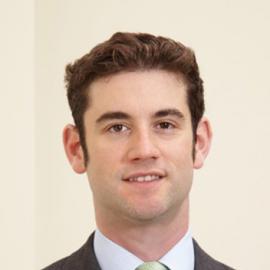OVERVIEW
XL Insurance Company SE v IPORS Underwriting Limited & Others
What happens when an alleged fraudster pays tax on moneys which the claimant alleges are trust moneys belonging to the claimant? Can the claimant seek disclosure from HMRC, including with a view to asserting proprietary claims over the moneys held by HMRC?
XL Insurance Company SE (“the Claimant”) brought a debt claim for over £4 million against a coverholder for unpaid premiums. As the premiums received by the coverholder were, under the terms of the agreement, to be held on trust for the Claimant, the Claimant also brought a variety of proprietary and equitable claims against: the coverholder, its sole director and shareholder (“D2”), and another company associated with D2.
Having obtained numerous freezing and disclosure orders, the Claimant obtained disclosure of D2’s bank statements. These revealed payments to HMRC by D2 which, on the Claimant’s case, were wrongly based on “income” D2 had received, when in fact the moneys received were the Claimant’s trust funds. As a result, on the Claimant’s case, there was no tax due on the Claimant’s trust moneys. The Claimant therefore intimated proprietary claims to those sums, alleging that HMRC had no defence of bona fide purchaser for value, as no “value” had been given.
The Claimant sought disclosure of D2’s tax records pursuant to the Court’s equitable jurisdiction in tracing claims and pursuant to CPR 31.17. HMRC could not provide disclosure without a Court order, but decided to oppose application on the basis that the disclosure sought was irrelevant to the primary issue of misappropriation and because any tracing could be done post-judgment. However, HMRC then adopted a neutral position by the time of the hearing, save for points over the scope of the order and costs.
Decision
HHJ Waksman QC (Sitting as a Judge of the High Court), in an ex tempore judgment, found there to be strong grounds for the broad disclosure sought by the Claimant. He rejected the original basis for objection by HMRC.
On the question of costs, the Judge accepted that only in exceptional cases would the Court depart from the general rule in CPR 46.1(2) was that the third party should have its costs, and noted that HMRC was a public body with duties of confidentiality. The Claimant submitted that, in this case, there was reason to depart from that rule due to HMRC’s unreasonable opposition, relying on CPR 46.1(3). The Judge held that the appropriate costs order was for HMRC to have half its costs and the Claimant be allowed to recover those costs (and its own costs of the application) against D2.
Commentary
The case raises interesting questions of tracing against innocent third parties/public bodies, including where a claimant asserts that trust moneys belonging to it have been treated as income by a defendant, and whether such moneys can be followed into the hands of HMRC.
The decision is significant in showing the Court’s ability to make wide disclosure orders in this context in relation to a defendant’s tax affairs rather than, as is more commonly the case, against third party banks. It is also an example of the Court’s exercise of discretion in relation to costs in the context of third party disclosure.
Joseph England appeared for the Claimant (instructed by Neel Robb of XL Catlin Services SE).

